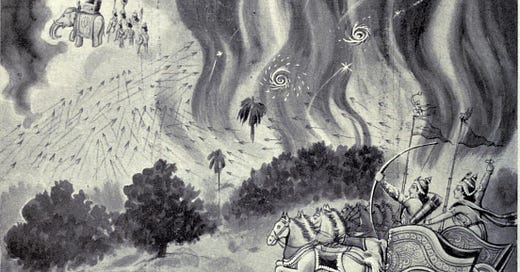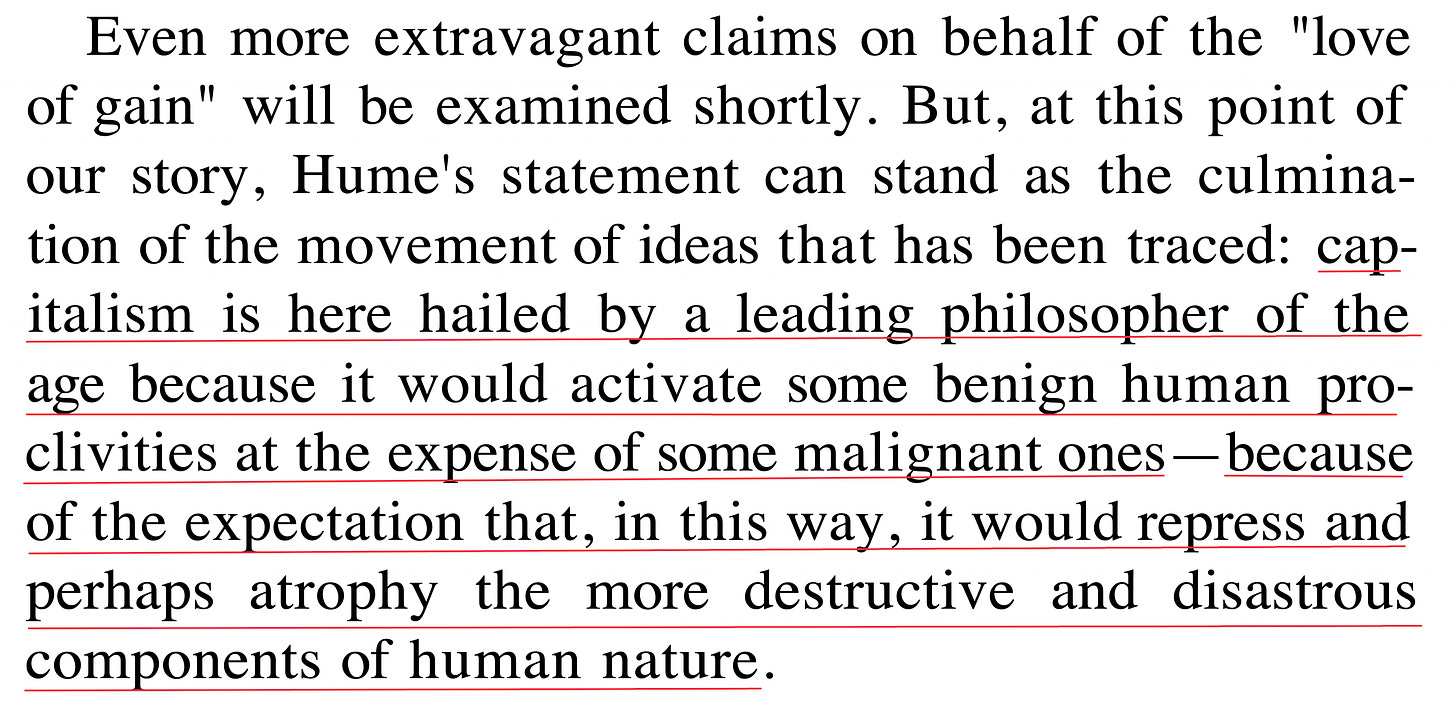Planet as Prefix V
If the universe belongs to god, the earth belongs to man. With that deed in hand, we can tear down a forest to build a city and dam a river to quench its thirst. Accumulation is the mechanism through which we shape the earth in our image, both directly by turning it into commodities and indirectly through the exhaust of accumulative production. Until recently, that assumption was carried out through conquest and expansion (go forth and multiply!) but there’s been no tierra nueva to conquer for over a hundred years.
After conquest comes colonization and that increases the demand for new forms of knowledge, of measuring, tabulating and controlling the mechanisms of life. The richness of the living environment was opaque to our scientific vision until recently, but the biological and geological sciences have brought us much closer to full knowledge: we may quibble whether increased carbon in the atmopshere will lead to 2 degrees or 4 degrees of warming, but we have excellent models that are only going to get better. Our problem seems to be the typical challenge of a settler colonialist with a conscience who says:
I have conquered the earth and its secrets have been revealed to me, so why am I not able to govern it?
Here’s an alternate view:
What if the accumulative view of success, whether of money, power or scientific knowledge, is the wrong measure?
Accumulation comes in many forms. Growth leads to accumulation among individuals well as collective. In a competitive environment, growth is essential since static wealth will be superseded by others growing faster than you’re. Accumulated wealth also open doors and speeds up future accumulation in the presence of investment vehicles such as banks and also introduces risk when the investments fail.
The simplest way to accumulate is to point a gun to your head and ask for your wallet. But plunder isn’t as good as stable revenue.
Power, especially control over violence, leads to accumulation in the form of taxation, tribute and rent seeking, but it’s also a destabilizing influence; war can destroy accumulated wealth in a matter of days. Paradoxically, the threat of violence calls for a Leviathan who is so much more powerful than anyone else that they can demand tributes from everyone and protect everyone’s capacity to accumulate. The Climate Leviathan is the natural endpoint of this development, protection for accumulation at a planetary scale with penalties for those who disobey the rules. Remember the optimism with which capitalism was greeted by major philosophers. As Hirschman writes in ‘The Passions and the Interests’:
This screenshot should also remind you of what Dipesh Chakrabarty said about the European influence in India, that it became possible to become a prominent person without knowing how to kill people. And yet, not only did capitalism lead to the most destructive century of all, it’s come close to destroying life on earth. In 2000, Hardt and Negri were able to write:
That Empire is breaking down with a Global Cold War on our hands, and a planetary empire - the Climate Leviathan - is the only imperial hope.
Will the Climate Leviathan be able to tame these planetary passions? Can it even be created?
In response, I have the famous quote of Frederic Jameson, “it is easier to imagine an end to the world than an end to capitalism,” which is meant as a commentary on our addiction to the accumulative society, but we can also read it the following way: we know how to live inside the world of capital, we know what it’s like to work and play and move and sleep. Capitalism is fully formed and and imagination of the end of capitalism will have to be richly detailed. In contrast, the end of the world can be relegated to apocalyptic movies and other crude depictions.
When we think of the Climate Leviathan or any other final planetary order, we are bringing together two very different orders of imagination: a rich understanding of the current world and where it’s going and a thin, speculative imagination of a world very different from our current one, either because it’s contours are drawn very differently from ours, or because our world has ended and we have to imagine life after the closing chapter.
Weekly Review
At the beginning of this week, I said “nothing in society makes sense except in the light of the planet” and then proceeded to illustrate that claim by turning the planet into a prefix, a modifier of other activities, some pre-existing, some nascent and some yet to come.
Prefixing is an easy way to expand the globe and its activities in a planetary direction. The common thread that runs through all these activities is accumulation, a master activity (stuff qua stuff) that defines what it is to be human through space and time. Accumulative activities and the challenges of coordinating them in ever more complex systems and at ever greater scales shows the human empire at its fullest and at its limit, reveals that empire to be at the threshold of a precipice. A Climate Leviathan (a planetary Keynes) might pull it back from the brink, or it may not. We need to keep reading the world until it shows us the signs of what’s to come. Not Galileo’s Book of Nature but a Book of the World.
So I’ll add two concepts from this week to our common vocabulary: planetary prefix and accumulation and one from last week: provincialing the globe & get back to reading the many books on my table with those three concepts as reading guides.








